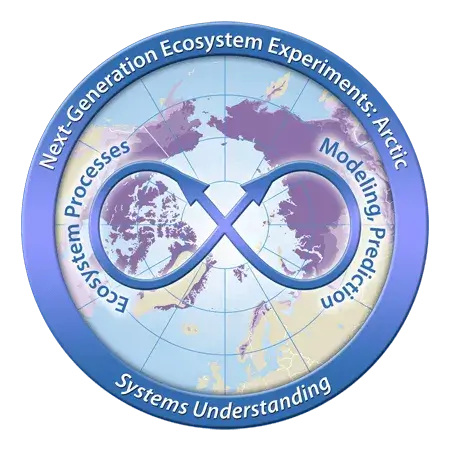Yuan, Fengming, and Shuhua Yi. “Responses of Boreal Forest Ecosystems and Permafrost to Climate Change and Disturbances: A Modeling Perspective”. Arctic Hydrology, Permafrost and Ecosystems, Springer International Publishing, 2021, pp. 849-92, https://doi.org/10.1007/978-3-030-50930-9_29.
Publications
Displaying 21 - 40 of 67
By year of publication, then alphabetical by title
- Kropp, Heather, et al. “Shallow Soils Are Warmer under Trees and Tall Shrubs across Arctic and Boreal Ecosystems”. Environmental Research Letters, vol. 16, no. 1, 2021, p. 015001, https://doi.org/10.1088/1748-9326/abc994.
- Watts, Jennifer D., et al. “Soil Respiration Strongly Offsets Carbon Uptake in Alaska and Northwest Canada”. Environmental Research Letters, vol. 16, no. 8, 2021, p. 084051, https://doi.org/10.1088/1748-9326/ac1222.
- Virkkala, Anna-Maria, et al. “Statistical Upscaling of Ecosystem Carbon Dioxide Fluxes across the Terrestrial Tundra and Boreal Domain: Regional Patterns and Uncertainties”. Global Change Biology, vol. 27, no. 17, 2021, pp. 4040-59, https://doi.org/10.1111/gcb.v27.1710.1111/gcb.15659.
- Roy_Chowdhury, Taniya, et al. “Temporal, Spatial, and Temperature Controls on Organic Carbon Mineralization and Methanogenesis in Arctic High-Centered Polygon SoilsData_Sheet_1.Docx”. Frontiers in Microbiology, vol. 11, 2021, https://doi.org/10.3389/fmicb.2020.61651810.3389/fmicb.2020.616518.s001.
- Mekonnen, Zelalem A., et al. “Topographical Controls on Hillslope‐Scale Hydrology Drive Shrub Distributions on the Seward Peninsula, Alaska”. Journal of Geophysical Research: Biogeosciences, vol. 126, no. 2, 2021, https://doi.org/10.1029/2020JG005823.
- Rogers, Alistair, et al. “Triose Phosphate Utilization Limitation: An Unnecessary Complexity in Terrestrial Biosphere Model Representation of Photosynthesis”. New Phytologist, 2021, https://doi.org/10.1111/nph.17092.
- Ladd, Mallory P., et al. “Untargeted Exometabolomics Provides a Powerful Approach to Investigate Biogeochemical Hotspots With Vegetation and Polygon Type in Arctic Tundra Soils”. Soil Systems, vol. 5, no. 1, 2021, p. 10, https://doi.org/10.3390/soilsystems5010010.
- Debolskiy, Matvey V., et al. “Water Balance Response of Permafrost-Affected Watersheds to Changes in Air Temperatures”. Environmental Research Letters, vol. 16, no. 8, 2021, p. 084054, https://doi.org/10.1088/1748-9326/ac12f3.
- Zlotnik, Vitaly A., et al. “A Model of Ice Wedge Polygon Drainage in Changing Arctic Terrain”. Water, vol. 12, no. 12, 2020, p. 3376, https://doi.org/10.3390/w12123376.
- Yang, Dedi, et al. “A Multi-Sensor Unoccupied Aerial System Improves Characterization of Vegetation Composition and Canopy Properties in the Arctic Tundra”. Remote Sensing, vol. 12, no. 16, 2020, p. 2638, https://doi.org/10.3390/rs12162638.
- Bouskill, Nicholas J., et al. “Alaskan Carbon-Climate Feedbacks Will Be Weaker Than Inferred from Short-Term Manipulations”. Nature Communications, vol. 11, 2020, p. 5798, https://doi.org/https://doi.org/10.1038/s41467-020-19574-3.
- Philben, Michael J., et al. “Anaerobic Respiration Pathways and Response to Increased Substrate Availability of Arctic Wetland Soils”. Environmental Science: Processes & Impacts, vol. 22, no. 10, 2020, pp. 2070-83, https://doi.org/10.1039/D0EM00124D.
- Zhu, Qing, et al. “Assessing Impacts of Plant Stoichiometric Traits on Terrestrial Ecosystem Carbon Accumulation Using the E3SM Land Model”. Journal of Advances in Modeling Earth Systems, 2020, https://doi.org/10.1029/2019MS001841.
- Iversen, Colleen M., et al. “Building a Culture of Safety and Trust in Team Science”. Eos, vol. 101, 2020, https://doi.org/10.1029/2020EO143064.
- Coon, Ethan T., et al. “Coupling Surface Flow and Subsurface Flow in Complex Soil Structures Using Mimetic Finite Differences”. Advances in Water Resources, vol. 144, 2020, p. 103701, https://doi.org/10.1016/j.advwatres.2020.103701.
- Euskirchen, Eugénie S., et al. “Co‐producing Knowledge: The Integrated Ecosystem Model for Resource Management in Arctic Alaska”. Frontiers in Ecology and the Environment, vol. 18, no. 1, 2020, pp. 447-55, https://doi.org/10.1002/fee.2176.
- Jafarov, Elchin E., et al. “Estimation of Subsurface Porosities and Thermal Conductivities of Polygonal Tundra by Coupled Inversion of Electrical Resistivity, Temperature, and Moisture Content Data”. The Cryosphere, vol. 14, no. 1, 2020, pp. 77-91, https://doi.org/10.5194/tc-14-77-2020.
- Jan, Ahmad, et al. “Evaluating Integrated Surface Subsurface Permafrost Thermal Hydrology Models in ATS (v0.88) Against Observations from a Polygonal Tundra Site”. Geoscientific Model Development, vol. 13, no. 5, 2020, pp. 2259-76, https://doi.org/10.5194/gmd-13-2259-202010.5194/gmd-13-2259-2020-supplement.
- Abolt, Charles J., et al. “Feedbacks Between Surface Deformation and Permafrost Degradation in Ice Wedge Polygons, Arctic Coastal Plain, Alaska”. Journal of Geophysical Research: Earth Surface, vol. 125, no. 3, 2020, https://doi.org/10.1029/2019jf005349.

